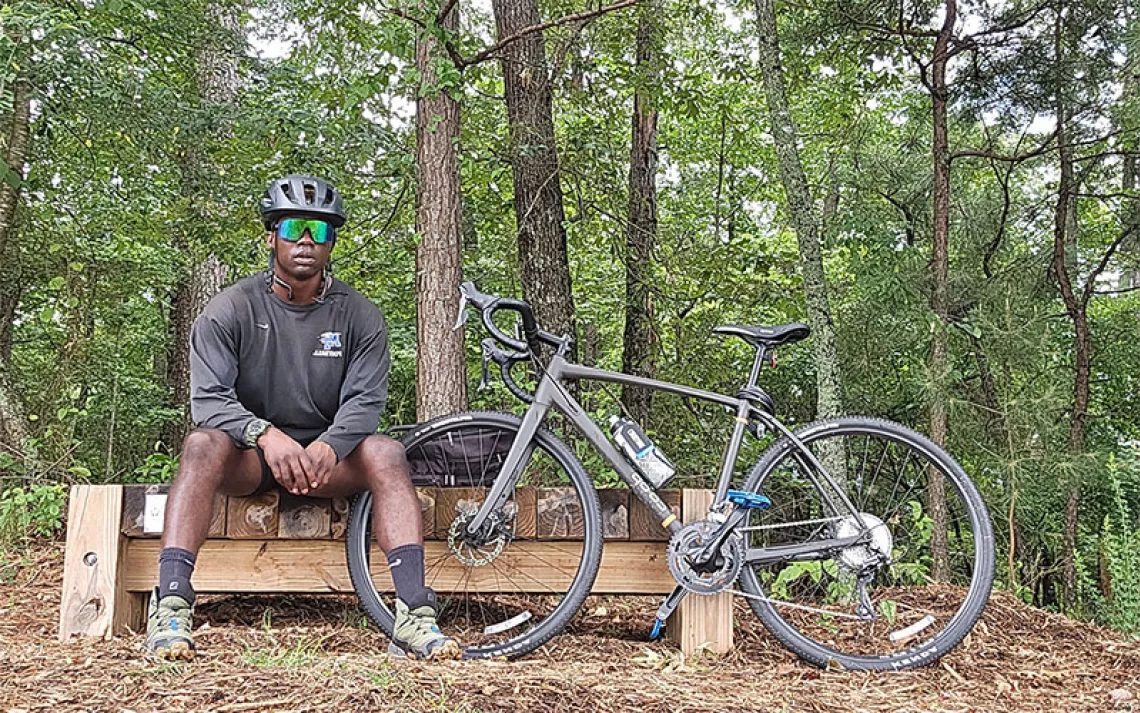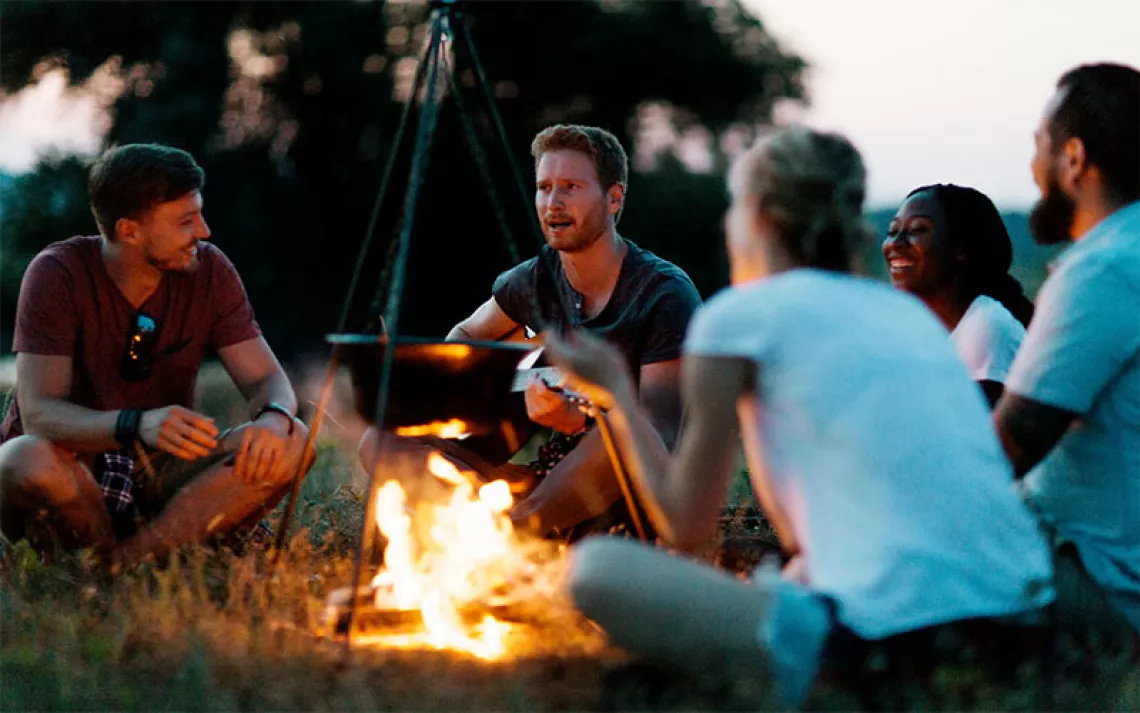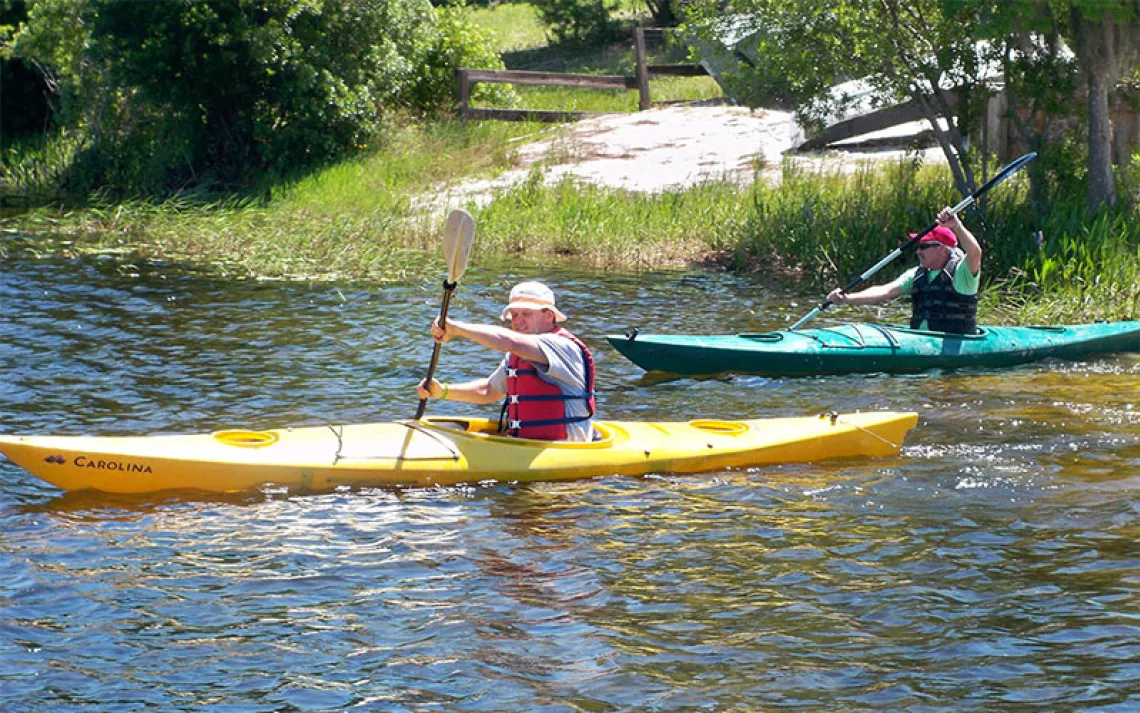Can You Unplug for 100 Hours This Summer? OARS Thinks So.
The rafting company has launched a campaign to get families outside

Photo courtesy of OARS
Can you get your child to “unplug” for 100 hours this summer? Can you unplug for that long? OARS, one of the largest rafting companies in the world, is asking you and your family to do just that with the #100HoursUnplugged Challenge. How to participate? Just leave your screen-based lives behind—no texts, television, Facebook, or Instagram—and spend time together outdoors for 100 hours. That can equal a long weekend camping trip, multiple summer hikes, or two hours having fun in your yard or neighborhood park every afternoon for seven weeks. The challenge is meant to be doable, and OARS intentionally launched the campaign during the summer when families often take their vacations.
Children eight to 18 years old spend between six to nine hours a day consuming media, excluding screen time for schoolwork. At a panel discussion at the Family Travel Association Summit in 2016, Steve Markel, the VP of marketing for OARS, said that encouraging kids to play in nature is not only essential for their physical and emotional health, but “it’s the best way—maybe the only way—to ensure the protection of our national parks and public lands for the enjoyment of future generations.” OARS has partnered with Outdoor Families Magazine, Children & Nature Network, Family Travel Association, National Park Foundation, Chacos, and NRS, a mix of nonprofit organizations and corporations to launch the challenge.
The question of how much time children spend consuming media—and its effect on childhood development—is not a new one. In the Victorian era parents blamed “penny dreadfuls” for causing an uptick in juvenile delinquency, and comic books were maligned for the same reason in the 1950s. Once television invaded American homes in the postwar era, screens became the object of concern. Over 50 years ago, the famed pediatrician and parenting guru Dr. Benjamin Spock lamented in his 1961 book, Dr. Spock Talks with Mothers: Growth and Guidance, what by now is a familiar refrain: “In [children’s] free time, they used to be actively playing, and they usually preferred to be racing around outdoors because there was so much freedom and company there. Now television lures the young ones in and sets them down for hours and hours every week.” Not much has changed, except that in addition to television, now computers, smartphones, and tablets compete for children’s attention (although television still dominates).
Adults hardly set a good example of how to set limits with technology, spending up to nearly 11 hours a day on screens. Therefore, the American Academy of Pediatrics recommends creating a family media plan in order to prevent digital media from encroaching on shared meals, outdoor recreation, and other family activities.
The 100 Hours Unplugged Campaign can be part of that plan. The company acknowledges that going “unplugged” does not necessarily mean a total absence of technology. As Richard Louv, the co-founder of the Children and Nature Outdoors Network and author of several books about connecting families to nature wrote, “The truth is we’ve always used technology to get outside. A fishing rod is technology. So is a backpack. So are binoculars and a compass.” Cameras, video, or audio recorders, or GPS devices can all be used to excite children to engage with nature and the outdoors. Families that participate in the challenge get to decide what going “unplugged” means to them—whether that’s going into “airplane mode” or disconnecting from digital devices entirely.
Pete Eshelman, the director of the Roanoke Outdoor Foundation in Virginia, has pledged to complete the 100 Hours Unplugged challenge with his wife and two teenage daughters. While his children will be attending summer camps that ban cell phones, he and his wife plan to put their phones away for the weekend and delete the Facebook app “for at least the summer…hopefully forever.” During the rest of the year, the family does not charge their phones in their bedrooms and forbids their use during road trips to encourage reading or conversation. Mr. Eshelman acknowledges that since he is a professional in the outdoors industry, his family’s participation in the program may be preaching to the choir, but he’s glad to have the extra incentive to seek out screen-free downtime.
Hopefully, the summer campaign will make outdoors activities accessible to a larger group of people. OARS is working with various organizations to get more than 250 underserved youth on river trips this summer. Cari Morgan, communications manager at OARS, believes that this “first unplugged adventure [will] inspire them to go home and encourage their families and broader communities to go offline and outside together.”
 The Magazine of The Sierra Club
The Magazine of The Sierra Club



